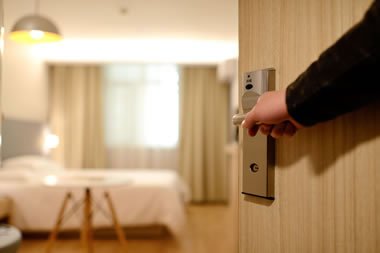Increased Legionella Risks Forced Wolverhampton Hotel to Close

Most hotels do a sterling job of adhering to all health and safety laws, including those relating to the management of their water systems. Legionella bacteria are a very real threat to human health when not kept under control. Owners and operators of premises including hotels and spas, hospitals, care homes and other public areas must do everything possible to maintain and treat their water systems, so workers, customers and the public are never put at risk of illness (including Legionnaires’ disease).
This was seen most recently in Wolverhampton, United Kingdom where local health officials served notice on the Ramada Park Hall Hotel and Spa to refrain from using its hot and cold water systems. Legionella bacteria had been discovered in various water samples taken from the hotel, and the local council felt it necessary to act to protect public health.
Remedial works to combat legionella in the hotel water systems
Following news of the hotel closure in August 2018, remedial works were carried out to resolve the issues with the legionella contamination of the hotel water systems. During this period the hotel did not accept guests staying overnight until the system was confirmed safe and the council felt it appropriate to lift the prohibition notice.
It should be noted that no cases of Legionnaires’ disease are thought to have arisen in those who work at or have visited the Ramada Park Hall Hotel. However, a local councillor pointed out “the right precautions” should always be taken to prevent illness.
The pitfalls of not complying with the law to control legionella
All hotels and similar premises should have a legionella risk assessment and a suitable water safety plan in place that covers the management, treatment and maintenance of the water systems. The plan should also highlight steps to be taken if water testing indicates higher-than-usual levels of Legionella bacteria in the water.
How costly is the adverse publicity and reputational damage?
If the correct legionella control measures are taken in advance, there should be no need for a situation to get out of control and become dangerous to public health. If it does, there is a chance that the health and safety regulators, including the Local Authority or Health & Safety Executive, could eventually serve notice on the premises to close – as was the case at the Ramada Park Hall Hotel, Wolverhampton.
Yet even that is not the biggest concern for the owners of the business in question. Closure of the hotel to paying guests due to the risks from Legionella bacteria in the water system resulted in lots of negative publicity that can be hard to overcome. Even when a hotel or other venue reopens, profitability can be seriously affected. Confidence and public trust can easily be eroded, as people wonder whether it is safe to return.
In some cases, owners have tried to sell a business involved in a similar scenario, only to fail to do so. Administration may not be far off in that case. Following the law is clearly the best course of action in all scenarios.
Legionella control water safety specialists
Our teams of water safety specialists support those responsible for the control of waterborne pathogens including Legionella bacteria in the workplace, helping them to protect their people and meet their health and safety obligations in this specialist area. We deliver professional water safety risk assessments for legionella and other waterborne pathogens, water testing, independent compliance auditing, City & Guilds training and other environmental risk management services that help keep staff and others safe.
If you have questions about any of the issues raised above or you would like to speak with one of our specialists please call us today on 0330 223 36 87 or contact us here.


